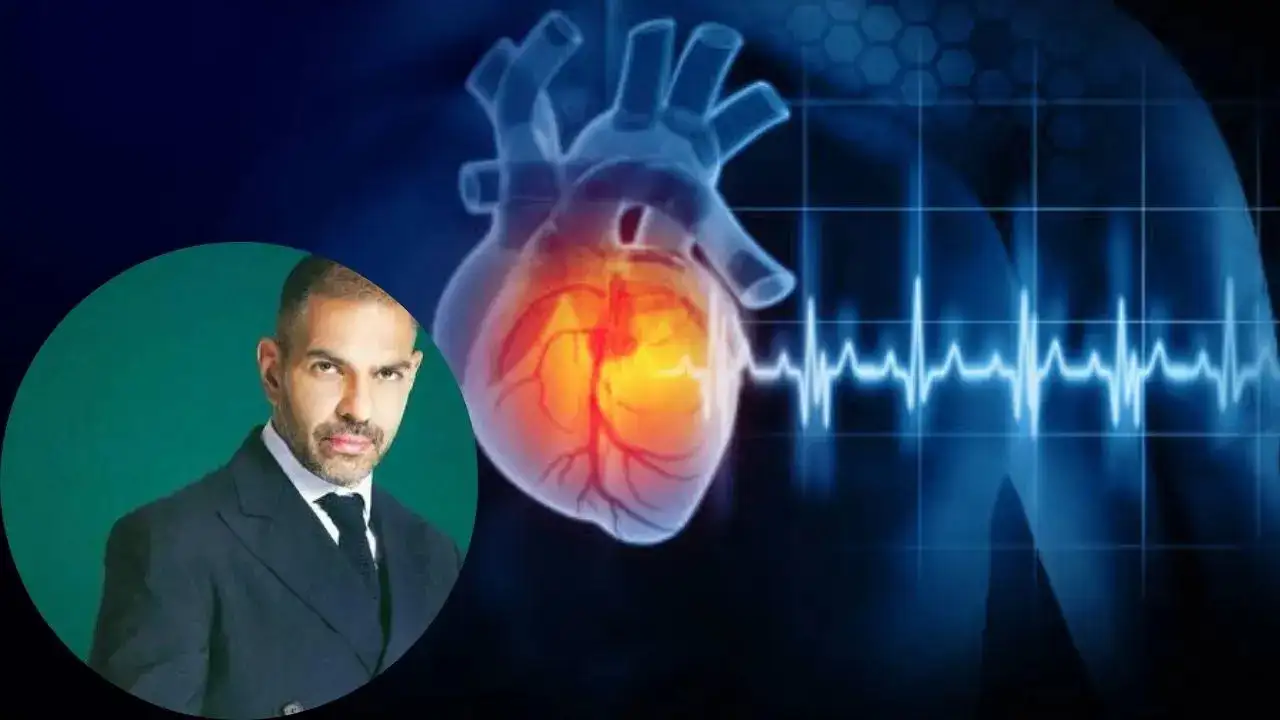
According to news reports, Sanjay passed away while polo in England (Pic: Instagram/iStock)
Industrialist Sunjay Kapur, who was once married to Bollywood star Karisma Kapoor, died of a heart attack at the age of 53. According to news reports, the incident happened when he was playing polo in England.
Kapur, the chairman of Sona Comstar – a global automotive systems and components manufacturer – is believed to have collapsed after suffering from chest pain while the match was on. His sudden passing has sent shockwaves across the automotive and business communities, many of whom admired his leadership, vision, and commitment to the industry.
What happens to your heart in your 50s?
According to experts, once you hit 50, your body experiences transformations that require particular focus on maintaining heart health. There are many risk factors you may have, and so doctors say it is important to take care of your cardiovascular health as you age by adopting certain lifestyle changes.
The importance of heart care rises after 50 because ageing naturally impacts heart muscles and blood vessels. Proper knowledge combined with consistent healthy habits will enable you to greatly lower your heart disease risks while maintaining an active life during your later years.
Doctors say your blood vessels may start losing optimal flexibility – which affects smooth blood circulation. Heart muscles also undergo thickening or weakening, impacting the efficiency of your heart’s pumping function. And so, poor lifestyle habits can speed up the process further. Those in their 50s do experience a considerable rise in their chances of developing high blood pressure, high cholesterol, and diabetes – all of which are critical factors behind heart disease.
After menopause, women lose the protective effects of estrogen which elevates their heart health risks compared to pre-menopause levels. Men usually develop heart issues earlier than women, but by the 50s, the risk faced by both genders starts to equalize.
Ways to take care of your heart in 50s
According to experts, prioritizing heart health in the 50s involves a combination of lifestyle changes and proactive medical care – which includes adopting a heart-healthy diet, staying physically active, managing stress, quitting smoking, and getting regular checkups done. Also, maintaining a healthy weight, balancing work and life, and getting proper sleep are crucial.
Adding Omega 3 to your diet
Omega-3 fatty acids provide the most significant heart benefits, but it is important to obtain them from the right source. While fish like salmon and mackerel are traditional recommendations, there are some plant-based alternatives as well – which are equally effective.
Algae oil is a rich source of DHA and EPA forms of omega-3s, which the body absorbs easily while avoiding the heavy metal contamination sometimes found in fish and helps in easing inflammation, which forms plaque.
Brain and heart exercises
Doctors say by the time you hit your 50s, cognitive health starts to play an important role in cardiovascular function since both are connected. A few activities that engage your brain while benefiting the heart produce powerful synergistic outcomes – like dancing, learning musical instruments, and martial arts like Tai chi and qigong.
Keeping track of sedentary behaviour
Long periods of sedentary behaviour can create specific cardiovascular dangers regardless of whether or not you have a regular physical exercise routine. Doctors say not moving enough can speed up arterial stiffening while decreasing metabolic efficiency even among regularly active adults.
Not being active makes heart problems worse when you consume the worst foods for your heart along with it. And so, you must break your sitting routine at 25-30 minute intervals with two minutes of movement to activate around 300 muscles when you simply stand and stretch. It also helps improve blood circulation and glucose metabolism.
Optimize vitamin D levels
After you hit your 50s, vitamin D deficiency becomes an unrecognized cardiovascular threat since the skin production of this essential nutrient drops by more than 50 per cent. Doctors recommend maintaining appropriate vitamin D levels through monitoring processes, which is essential for heart health.
Getting 15-20 minutes of morning sunlight on arms and legs without sunscreen helps produce vitamin D naturally and also maintains circadian rhythms that influence heart performance.
Regular heart check-ups
Once you reach your 50s, get regular cardiovascular assessments to keep your heart health in top shape. These check-ups help find potential heart disease risk factors and also early indicators before any symptoms present themselves.
